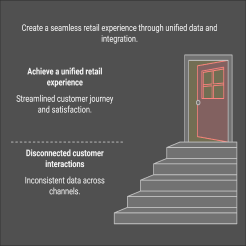
Managing a warehouse efficiently is crucial for the success of any logistics operation. Inefficient warehouse practices can lead to increased costs, delays, and dissatisfied customers. If you’re wondering whether your warehouse could use an efficiency boost, here are ten signs that indicate it’s time for a makeover.
Is Your Warehouse Slowing You Down?
Efficient warehouse operations are essential for meeting customer demands, reducing costs, and staying competitive. Inefficiencies can lead to delays, errors, and increased expenses, which can ultimately harm your business’s reputation and bottom line.
10 Warning Signs Your Warehouse Needs Improvement
1. Lengthy Order Fulfillment Times
- Customers Experiencing Delays Due to Slow Picking and Packing Processes: If your customers are consistently experiencing delays in receiving their orders, it’s a clear sign that your picking and packing processes are inefficient. Slow fulfillment times can frustrate customers and lead to lost business.
- Potential Loss of Business Due to Unreliable Delivery Times: Unreliable delivery times can damage your reputation and drive customers to competitors. According to a study by Capgemini, 55% of customers would switch to a competitor if it offered faster delivery services.
2. Rising Warehouse Operating Costs
- Inefficient Use of Labor and Resources Leading to Higher Costs: High operating costs are often a result of inefficient labor and resource use. This can include everything from excessive overtime to wasted materials. The Bureau of Labor Statistics reports that labor costs account for nearly 60% of total warehouse operating expenses.
- Need to Explore Cost-Saving Solutions for Warehouse Operations: Exploring cost-saving solutions, such as automation and optimized workflows, can significantly reduce operating expenses. Implementing such solutions can lead to a 15-30% reduction in overall costs, according to McKinsey & Company.
3. Stockouts and Overstocking Issues
- Inaccurate Inventory Management Leading to Product Shortages or Excess Stock: Stockouts and overstocking are common issues caused by inaccurate inventory management. These problems not only tie up capital but also lead to lost sales. The Harvard Business Review notes that inventory mismanagement can cost companies up to 10% of their annual revenue.
- Lost Sales Due to Stockouts and Wasted Storage Space Due to Overstocking: Stockouts result in lost sales and unhappy customers, while overstocking leads to wasted storage space and increased carrying costs. Efficient inventory management can help balance stock levels and improve profitability.
4. Disorganized Warehouse Layout
- Difficulty Locating Products Due to Poor Organization and Labeling: A disorganized warehouse layout makes it difficult for employees to locate products quickly, leading to delays and errors. According to the Warehousing Education and Research Council (WERC), 65% of a picker’s time is spent walking and searching for products.
Our Web Design and Development Services can help create an organized and efficient layout tailored to your warehouse needs. - Wasted Time Spent Searching for Inventory and Decreased Picking Efficiency: Improving warehouse organization can significantly enhance picking efficiency, reducing the time spent searching for inventory by up to 25%, according to a study by the Aberdeen Group.
5. Employee Safety Concerns
- Frequent Accidents or Injuries Due to Unsafe Work Practices or Improper Storage: Unsafe work practices and improper storage can lead to frequent accidents and injuries, creating a hazardous work environment. The Occupational Safety and Health Administration (OSHA) reports that warehouses have a higher rate of injuries compared to many other industries.
- High Employee Turnover Due to a Stressful and Potentially Hazardous Work Environment: High turnover rates are often a result of a stressful and unsafe work environment. Improving safety practices can enhance employee satisfaction and reduce turnover by up to 20%, according to the National Safety Council.
6. Outdated Warehouse Technology
- Reliance on Manual Processes Leading to Errors and Inefficiencies: Outdated technology and reliance on manual processes can lead to significant errors and inefficiencies. According to a study by Zebra Technologies, 73% of warehouses are investing in new technology to improve operational efficiency.
- Need for Modern Warehouse Management Systems (WMS) and Automation Solutions: Modern WMS and automation solutions can streamline operations, reduce errors, and improve efficiency. Implementing such technologies can increase productivity by up to 25%, as reported by Logistics Management.
For advanced AI-driven solutions, explore our AI development services to enhance your warehouse operations.
7. Lack of Visibility into Warehouse Operations
- Limited Real-Time Data on Inventory Levels, Order Status, and Resource Utilization: Limited visibility into operations makes it difficult to manage inventory levels, track orders, and utilize resources effectively. Real-time data can significantly improve decision-making and operational efficiency.
- Difficulty in Making Data-Driven Decisions to Improve Warehouse Efficiency: Data-driven decisions are essential for optimizing warehouse operations. Warehouses that use data analytics to drive decisions see a 20% increase in efficiency, according to Deloitte.
8. Increasing Customer Complaints
- Customers Dissatisfied with Slow Deliveries, Order Errors, or Damaged Products: Increasing customer complaints about slow deliveries, order errors, or damaged products indicate inefficiencies in your warehouse operations. A study by PwC found that 32% of customers will stop doing business with a brand they love after just one bad experience.
- Negative Impact on Brand Reputation and Potential Loss of Customer Loyalty: Customer complaints can harm your brand’s reputation and lead to a loss of loyalty. Improving warehouse efficiency can enhance customer satisfaction and loyalty, ultimately boosting your brand’s image.
9. Difficulty Scaling Operations
- Warehouse Struggles to Meet Demand Fluctuations During Peak Seasons or Growth Periods: If your warehouse struggles to handle demand fluctuations during peak seasons or periods of growth, it’s a sign that your operations are not scalable. Flexible and adaptable solutions are essential for meeting changing demands.
- Need for Flexible and Adaptable Warehouse Solutions to Accommodate Changing Needs: Implementing scalable solutions can help your warehouse adapt to changing needs, ensuring smooth operations during peak periods. According to Gartner, scalable warehouse solutions can improve operational flexibility by 30%.
10. Employee Morale and Productivity Issues
- Frustration and Inefficiency Among Workers Due to Disorganized Operations: Disorganized operations can lead to frustration and inefficiency among workers, negatively impacting morale and productivity. A well-organized warehouse can improve employee satisfaction and performance.
- Need to Improve Employee Engagement and Optimize Workflow for Better Productivity: Improving employee engagement and optimizing workflows can significantly boost productivity. The Society for Human Resource Management (SHRM) reports that engaged employees are 17% more productive than their less-engaged counterparts.
How Ayraxs Can Help You Streamline Your Warehouse Operations
Expertise in Warehouse Efficiency Solutions
Ayraxs specializes in providing tailored solutions to enhance warehouse efficiency. Our team of experts can help identify specific inefficiencies and implement effective strategies to optimize your operations.
Implementing Customized Solutions
We offer customized solutions to address your unique challenges, from improving inventory management to upgrading technology and optimizing workflows. Our approach ensures that your warehouse operates at peak efficiency.
Free Warehouse Efficiency Assessment
To help you get started, Ayraxs offers a free warehouse efficiency assessment. Our team will evaluate your current operations and provide recommendations for improvements.
FAQs
What Are the Benefits of Improving Warehouse Efficiency?
Improving warehouse efficiency can lead to reduced operating costs, faster order fulfillment, enhanced customer satisfaction, and a safer work environment.
How Can I Measure the ROI of Investing in Warehouse Improvements?
Measure the ROI by tracking key performance indicators such as reduced costs, increased productivity, and improved customer satisfaction. Compare these metrics before and after implementing improvements to assess their impact.
What Are Some Cost-Effective Ways to Improve Warehouse Efficiency?
Cost-effective ways to improve efficiency include optimizing layout, implementing better inventory management practices, investing in modern technology, and enhancing employee training and engagement.
How Can I Get Started with Modernizing My Warehouse Technology?
Start by identifying your specific needs and challenges, then research and evaluate various technology solutions. Partner with experts like Ayraxs to ensure a smooth implementation.
What Are the Best Practices for Creating a Safer Work Environment in a Warehouse?
Best practices include providing regular safety training, implementing ergonomic solutions, maintaining proper storage practices, and using technology to monitor and enhance safety.





